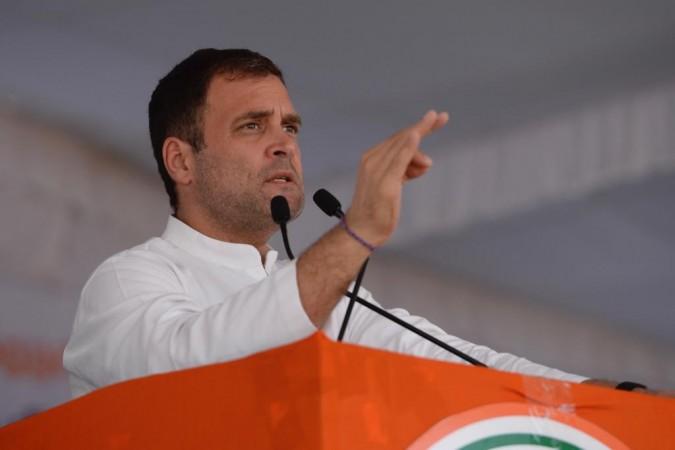
Congress President Rahul Gandhi's promise of direct mayoral elections for creating "real smart cities" could be seen as an election-eve manoeuvre to steal the thunder from the Bharatiya Janata Party (BJP) as Prime Minister Narendra Modi has been keen on civic administration reforms. In fact, the Urban Development Ministry has been asked to come up with suggestions for mayoral election reforms. Though Rahul Gandhi's tweet of Monday evening does not reveal much, any change to current dispensation would require a constitutional amendment requiring a two-thirds majority in Parliament.
Although the tweet initiates a debate about effective civic governance, it raises more questions than it answers. It is a moot point what Rahul Gandhi means by real smart cities. Considering that he was talking about cities in general and not the Smart Cities were chosen under the Smart Cities Mission, executive mayors are not necessarily the panacea for resolving civic problems. Any such reform needs to be accompanied by meaningful reforms in all spheres of civic administration.
Real smart cities are built by good leaders.
— Rahul Gandhi (@RahulGandhi) April 1, 2019
To improve quality of life in our cities we will move to directly elected Mayors with 5 yr terms & elected councils.
Administration will be run by multidisciplinary teams of specialists & experts accountable to the Mayor & council.
The 74th Amendment to the Constitution initiated by Rahul Gandhi's father Rajiv Gandhi and implemented during the term of his successor PV Narasimha Rao introduced local self-government reforms designating urban areas into mahanagar nigams (city corporations), nagar palikas (municipalities), and Nagar Panchayats (city councils). An overhaul of the system would require far-reaching changes to the constitution and the laws.
The current system of Indian civic administration is derived from the Westminster school of parliamentary democracy developed in the UK under which the head of government is indirectly elected. The civic council elects the mayor and the mayor uses his executive powers through the bureaucratic machinery headed by the city commissioner.
The direct election of a mayor will need some major changes to the system with a shift towards a presidential system of governance like in the US. Several countries following the Westminster system are gradually drifting towards the more presidential direct election of the mayor. London switched to direct election of mayor in 2000 after a referendum. On a national scale, there was heated debate about a switch to a presidential system of governance during Rajiv Gandhi's tenure as prime minister. The move, however, was abandoned after the opposition alleged the purpose of it was to accumulate more powers with the central government. It argued that such a system reneged on the promise of a federal system that the Constitution promised.

Rahul Gandhi said in his twitter message that in a bid to improve the quality of life in the cities his party would push for directly elected mayors with 5-year tenures and elected councils, a Business Today report said.
While one may agree with Rahul Gandhi's view that real smart cities are built by good leaders, it is debatable if the direct election would put the right person in the office.
Congress parliamentarian Shashi Tharoor was perhaps the first leader in recent times to pitch for direct election of the mayor. The private member's bill, Constitution (Amendment) Bill, that Tharoor introduced in the lower house of Parliament Lok Sabha in 2016, proposed direct elections for mayors including a provision for a mayor-in-council that would be nominated by the directly elected mayor. "A directly elected Mayor, at the head of the civic body, will be fully empowered with political, functional, and budgetary autonomy and would serve to fix both ownership and accountability for running the town or city," Tharoor had said in the bill.
















